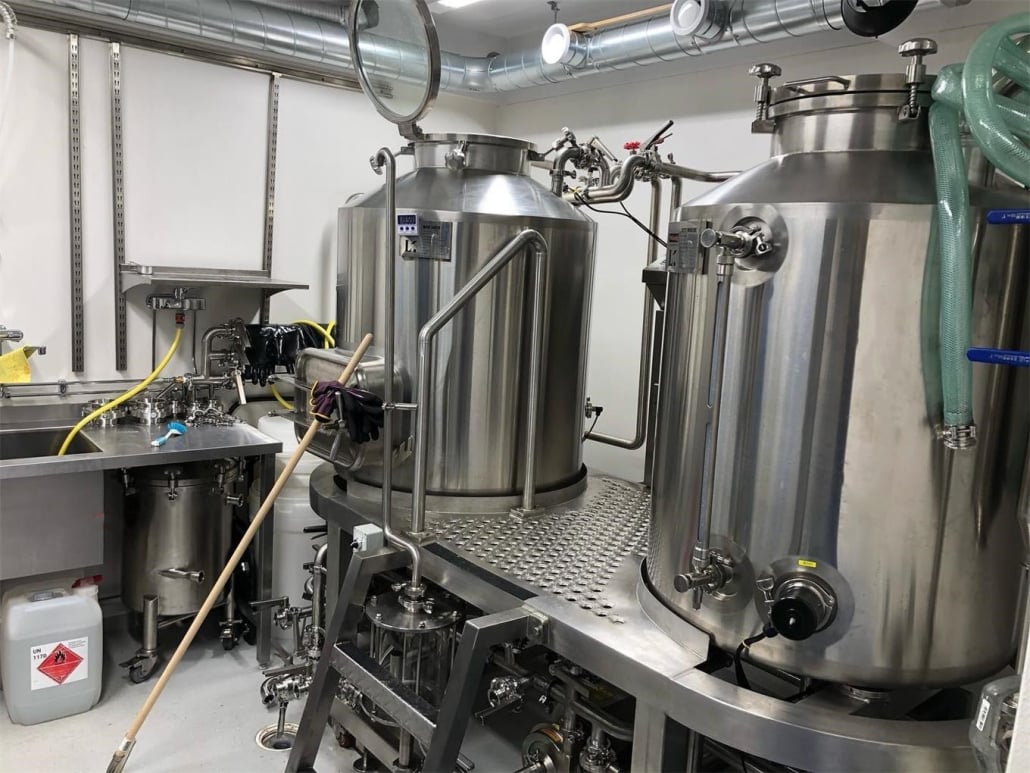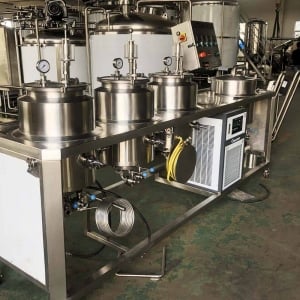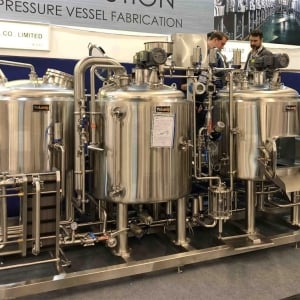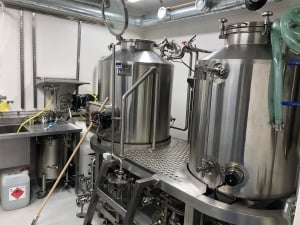Table of Contents
ToggleIntroduction
Micro brewing has become a dynamic and creative space within the larger brewing industry. This article delves into the world of micro brewing equipment, exploring its components, selection considerations, quality factors, and even the DIY approach. Whether you’re an aspiring brewer or a seasoned professional, understanding the nuances of micro brewing equipment is essential for crafting exceptional beer.
The Growth of Microbreweries
In recent years, the rise of microbreweries has significantly impacted the beer market. These small-scale breweries focus on producing limited batches of distinctive and flavorful beers. To achieve this, they rely heavily on specialized micro brewing equipment that empowers them to experiment with recipes and processes.
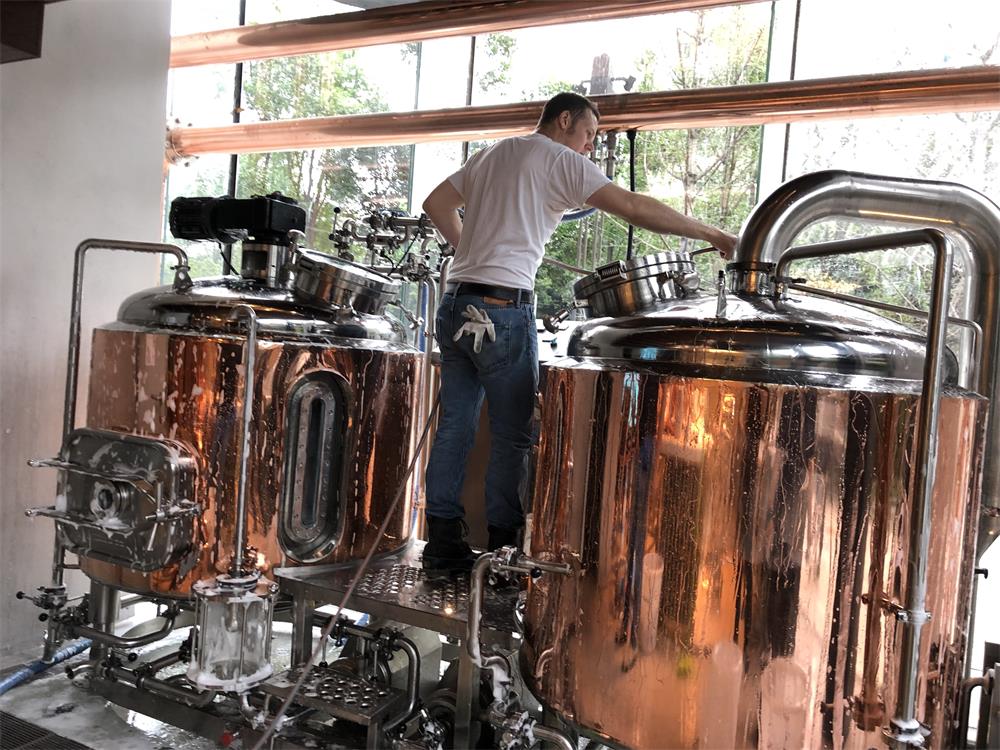
Key Components of Micro Brewing Equipment
Micro brewing equipment is a harmonious amalgamation of various components, each playing a crucial role in the brewing process.
Brewing Kettles and Mash Tuns
At the heart of any brewing operation are the brewing kettles and mash tuns. These vessels are where the brewing process begins, with malted grains being mashed and boiled to extract sugars and flavors.
Fermentation Tanks
Fermentation tanks are where the magic of yeast interaction takes place. These tanks must provide precise temperature control and be designed to minimize oxidation, ensuring the beer ferments to perfection.
Wort Chillers
After boiling, the wort needs to be rapidly cooled to the ideal fermentation temperature. Wort chillers, often made of stainless steel, efficiently cool the wort while preventing contamination.
Control Systems
Modern micro brewing equipment incorporates advanced control systems, enabling brewers to monitor and adjust various parameters such as temperature, pressure, and flow. This level of control enhances the consistency and quality of the final product.
Selecting the Right Micro Brewing Equipment
Choosing the right micro brewing equipment involves several considerations that can significantly impact your brewing journey.
Determining Batch Size
The size of your brewing batches will dictate the capacity of the equipment needed. It’s crucial to strike a balance between your production goals and available space.
Space and Layout Considerations
Microbreweries often operate in limited spaces. Efficient equipment layout is vital for ensuring smooth workflow, from mashing to packaging.
Budget Planning
Investing in micro brewing equipment requires careful budgeting. Balancing your budget with the quality and features of the equipment is essential.
Quality and Efficiency in Micro Brewing
Achieving consistent quality and efficiency is a cornerstone of successful micro brewing.
Consistency in Brewing
Micro breweries aim to replicate the same flavors and characteristics across multiple batches. Precise control over equipment and processes is necessary to achieve this consistency.
Temperature Control
Temperature plays a pivotal role in brewing at different stages. Accurate temperature control during mashing, boiling, and fermentation is vital for producing the desired flavors and aromas.
Cleaning and Maintenance
Maintaining clean and sanitized equipment is paramount in micro brewing. Regular cleaning and maintenance routines ensure the longevity of the equipment and the integrity of the beer.
Innovations in Micro Brewing Technology
The world of micro brewing equipment is continuously evolving with innovative technologies.
Automated Brewing Systems
Automation has found its way into micro brewing. Automated systems streamline processes, reduce human errors, and allow brewers to focus on creativity and recipe development.
Sustainability Features
Many micro breweries are embracing sustainability. Equipment with energy-efficient features and water-saving mechanisms not only reduce costs but also align with environmental values.
Importance of Scalability
As microbreweries grow, scalability becomes a critical consideration.
DIY Micro Brewing Equipment
For those with a hands-on approach, building your own micro brewing equipment can be an appealing option.
Building Your Own Equipment
DIY brewing systems allow for customization to match your brewing style. Many resources and online communities offer guidance on creating equipment from scratch.
Pros and Cons
While building your own equipment offers flexibility and cost savings, it requires technical skills and extensive planning. Commercial systems, on the other hand, offer reliability and support but can be more expensive.
Support and Training for Micro Brewing Equipment
Many equipment manufacturers offer training and support for brewers, ensuring they maximize the potential of their investment.
The Future of Micro Brewing Equipment
The future holds exciting possibilities for micro brewing equipment.
Advantages of Small-Scale Brewing
Microbreweries enjoy several advantages over larger counterparts.
Challenges to Consider
Despite the benefits, microbreweries also face unique challenges.
Regulatory Compliance
Navigating the regulatory landscape can be complex, requiring adherence to various permits and standards.
Marketing and Distribution
Getting the beer to market is another hurdle. Effective marketing and distribution strategies are essential for success.
Conclusion
Micro brewing equipment is the backbone of innovation and creativity in the beer industry. Whether you’re a passionate homebrewer or an entrepreneur looking to break into the market, understanding the intricacies of this equipment is essential. From selecting the right components to embracing automation and sustainability, the world of micro brewing equipment offers endless opportunities to craft exceptional beers that delight and satisfy the palate.
FAQs
1. Can I start a microbrewery with limited space? Absolutely. Many successful microbreweries operate in small spaces, focusing on efficient layouts and equipment utilization.
2. How much does micro brewing equipment cost? The cost varies widely based on factors like batch size, features, and brand. It’s important to create a budget that aligns with your business plan.
3. Are automated systems suitable for small-scale brewing? Yes, automated systems can benefit small-scale brewing by reducing labor and ensuring consistent results.
4. What are some sustainable features in micro brewing equipment? Sustainable features can include energy-efficient heating systems, water-saving designs, and materials with low environmental impact.
5. Do I need formal training to use micro brewing equipment? While formal training can be beneficial, many equipment manufacturers provide resources and support to help brewers learn how to operate their systems effectively.

